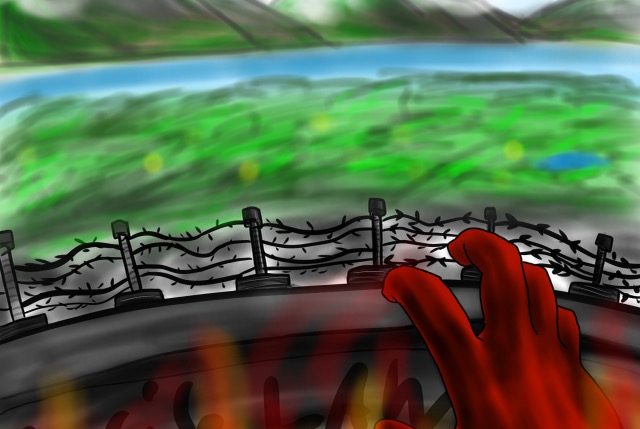As the world grapples with the surging climate crisis, the concept of ecocide — the “unlawful” acts committed “with knowledge that there is a substantial likelihood of severe and either widespread or long term damage to the environment being caused by those acts” — has emerged as a critical legal and ethical issue. Making ecocide an international crime is more than just about environmental conservation; it is a moral imperative that emphasizes our obligation to future generations.
The clear link between ecological health and human well-being emphasizes how urgent this issue is. Our basic life depends on the vital services that healthy ecosystems provide, such as fresh water, fertile soil and clean air. The deterioration of these systems jeopardizes human health, food security, global stability and biodiversity. By making ecocide a crime on the global stage, we hold governments and businesses responsible for their actions and take a firm stand against environmental degradation.
Currently, international law effectively addresses crimes such as genocide and war crimes, but it lacks a framework for dealing with the environmental damage that sometimes accompanied such atrocities. To exacerbate this issue, domestic ecocide-prevention laws are found in only 11 countries. As a result of the absence of binding legal accountability on a global scale, cross-national organizations are able to exploit natural resources unchecked, prioritizing short-term profits over long-term sustainability, according to the International Institute for Sustainable Development. The identification of ecocide as a crime under international law would fill this gap, generating a powerful disincentive against environmentally destructive behaviors and driving firms and states to adopt sustainable policies.
Moreover, the recognition of ecocide aligns with the growing public awareness and activity related to environmental matters. Climate justice movements are increasingly pushing for systemic change, and legal acknowledgment of ecocide would lend weight to these demands. By giving individuals and activists an enforceable structure to oppose harmful activities and hold offenders accountable.
Recognizing ecocide on a worldwide scale also promotes international collaboration. Environmental problems transcend geographic borders, and a coordinated response to criminalize and avert ecocide would encourage global collaboration and support laws that put the health of the environment first. A more sustainable future might be possible if a worldwide standard were established, which would enable the pooling of resources, knowledge and strategies for efficient environmental protection.
Opponents may argue that it could be difficult to enforce ecocide laws, especially when it comes to proving intent or harm. To create precise definitions and thresholds for ecocide, we can create legal frameworks, just like we can for other transnational crimes. It is possible to include provisions for environmental crimes into existing systems, such as the International Criminal Court, so that effective legal action can be taken.
Furthermore, declaring ecocide to be a criminal act on a global scale emphasizes the moral and ethical obligation we have to protect the environment for present and future generations. This understanding is essential to our collective survival as we face the pressing issues of environmental degradation and climate change; it goes beyond simple ethics.
Making ecocide an international crime is a critical step toward preserving the planet for our descendants. It is a call to action for all countries to acknowledge the unbreakable connection between the health of humankind and the health of our ecosystems. The moment lies before us for the world community to come together and protect the environment by making ecocide a criminal offense on a global scale, demonstrating our dedication to a just and sustainable future.















